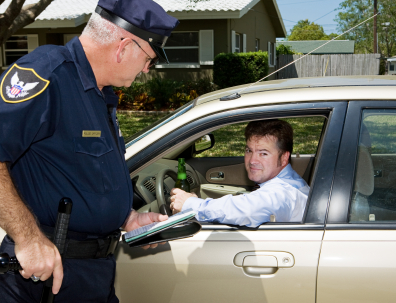
In the United States, upon an arrest and filing of criminal charges, each and every defendant is deemed innocent until proven guilty. The majority of defendants go to jail and are then sent to prison upon a guilty verdict, only if a sentence is over one year. If you were sent to jail, you might have had to wait a little while before you got charged with some kind of crime. But even after you find out the charges against you, you may not be free to go on bail while you wait for your trial.
Court proceedings are slow and only so much can get done, and there are often backlogs of defendants to get through. You can be held in custody legally, but you still have rights while you’re there.
Once you are arrested, you don’t immediately have formal charges against you. That happens at your arraignment, which is where a judge will read the charges the prosecutor has decided to bring against you. Between the arrest and arraignment, you may be kept in custody but a bail hearing must be held within 24 hours .
You may or may not get released after the charges are brought. After the prosecutor has brought charges, you may get formally released from physical custody in one of several ways. A bail could be set for you, meaning that you can go free if you can afford to pay it or secure a bond. You could get conditionally released such as with electronic monitoring, a supervised release, or home detention. Many time, you could get released on recognizance. But in many cases, whether because your bail is set too high and you can’t afford it or because you’re too much of a risk to let go, you could be physically detained the entire time before your verdict is determined by the jury.
The practice of holding an accused person in custody while they await trial is usually called “pretrial detention,” though it can also be referred to as “preventative detention” or “being on remand.” Pretrial detention typically occurs after an individual has been arrested and charged with one or more crimes but before they have been convicted of any of the crimes. The criminal defendant is detained in a jail or prison facility before their trial, rather than being allowed to return to their community.
This occurs when a judge determines that the individual poses a risk of fleeing, poses a danger to the community, or might obstruct the judicial process if released. If you’re deemed a danger to the community or specific individuals, detention may be ordered to protect the public. If you’ve been charged with a particularly serious or violent crime or crimes, you may be detained because of the severity of the charges. Also, if there is any reason to believe you might tamper with witnesses, evidence, or otherwise obstruct the judicial process, that could be grounds for detaining you.
If this is not the first time you’ve been arrested, it may be used against you. If you have a history of failing to appear in court or have a significant criminal record, this may influence the judge’s decision to detain you. And if you’ve previously been released on bail but violated the conditions of their release, you’re even more likely to be detained the next time you’re arrested while you await trial.
Pretrial detention ensures that the accused appears in court for their trial and that the judicial process proceeds smoothly. However, it is also balanced against the presumption of innocence and the individual’s right to liberty, which is why courts consider factors like the severity of the offense, prior criminal history, and ties to the community before making a decision.
Criminal defendants have certain rights protected by the U.S. Constitution, as well as the constitutions of whatever state you were arrested in.
Your “Miranda rights” include the right to remain silent and the right to an attorney. These must be read by law enforcement officers as soon as you’re taken into custody—starting with handcuffing. They have to read you these rights before interrogating you. If they don’t, then they cannot use anything you say to them as evidence in court. You can ask to speak to your lawyer at any time and refuse to speak otherwise.
What a lot of people don’t know is that the implications of Miranda rights often go further than allowing you to stay silent. State authorities (including the prison and the police) have an affirmative obligation to respect your right to counsel. In some jurisdictions, this has been interpreted to mean that they can’t take certain actions that might prevent or make it harder for you to access your lawyer if you want to. For example, they cannot restrict phone access or transfer you to a distant prison.
If you or a loved one is in a bind as a result of a criminal charge (theft or otherwise), immediately contact a Seattle Criminal Attorney. A Criminal lawyer is not going to judge you and understands that everyone makes mistakes. Hiring a Seattle Criminal Lawyer to help can – at a minimum – reduce penalties and can help direct people on how to best deal with their criminal charge, and many times even get them dismissed. So, it should go without saying that someone cited for a misdemeanor or felony should hire a qualified Seattle Criminal Lawyer as soon as possible. Criminal charges can cause havoc on a person’s personal and professional life. Anyone charged with a crime in Washington State should immediately seek the assistance of a seasoned Seattle Criminal Lawyer. SQ Attorneys can be reached at (425) 359-3791 and/or (206) 441-0900.


